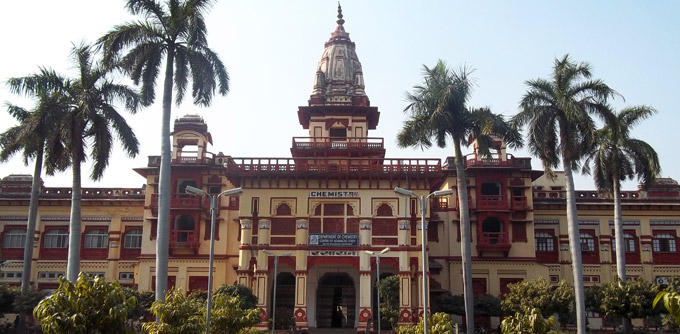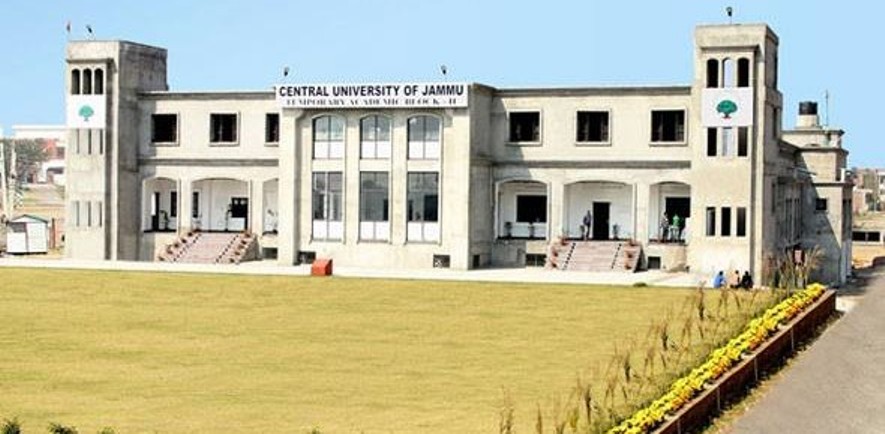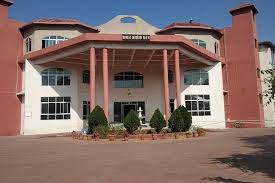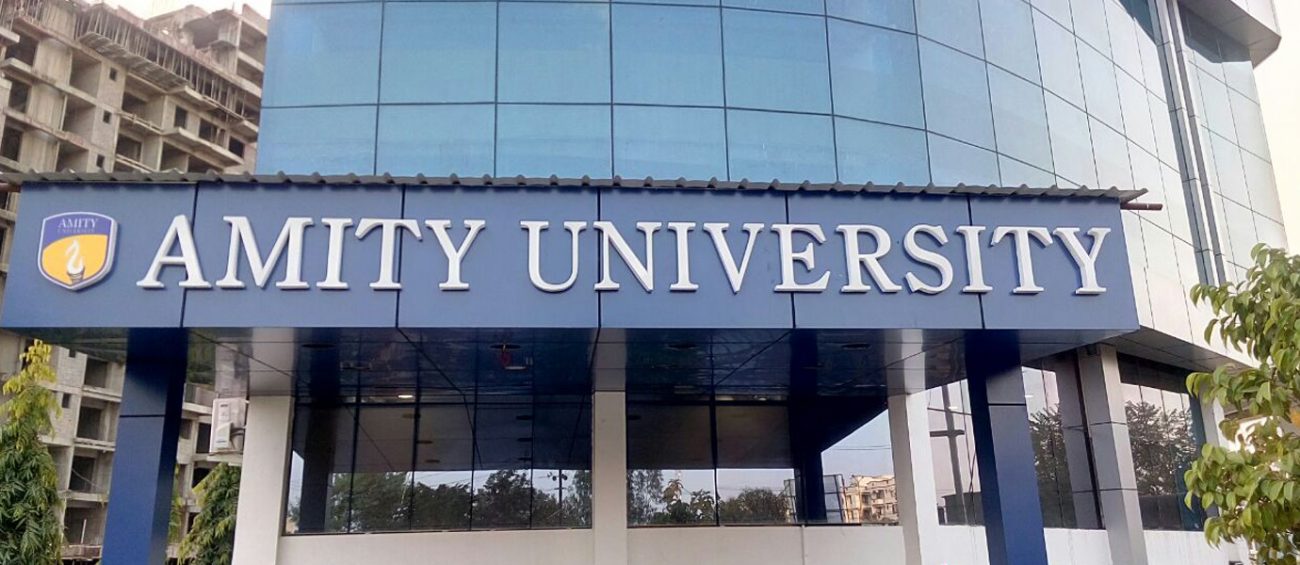The Common University Entrance Test (CUET) serves as a gateway to higher education in India, encompassing a diverse array of universities across different categories. This essay delves into the five primary types of universities that fall under CUET: Central Universities, State Universities, Private Universities, Deemed-to-be Universities, and Governmental Institutions. Each type has its unique characteristics, ranging from governance structures to academic offerings, locations, and overall contributions to the Indian educational landscape.
CENTRAL UNIVERSITIES
Central Universities are established by an act of Parliament and are funded by the central government. There are currently 46 Central Universities in India that come under CUET, with notable examples including the University of Delhi, Jawaharlal Nehru University, and Banaras Hindu University. These institutions are spread across various states, often located in major cities, and are known for their emphasis on research and academic excellence.
Central Universities offer a wide range of undergraduate, postgraduate, and doctoral programs across diverse fields such as science, arts, humanities, social sciences, and engineering. These universities are strategically located across various states, ensuring accessibility and academic opportunities for students from diverse regions.
Notable Central Universities
1. University of Delhi

- Location: New Delhi, Delhi
- Chancellor: Lt. Governor of Delhi (V.K. Saxena as of 2024)
- Top Courses: Bachelor of Arts (BA), Bachelor of Science (BSc), Master of Business Administration (MBA), Master of Science (MSc)
- NIRF Ranking 2024: 6
Established in 1922, the University of Delhi is one of the most prestigious institutions in India. It offers a wide array of undergraduate and postgraduate programs across disciplines such as humanities, social sciences, and natural sciences. The university is renowned for its robust research output and vibrant campus life.
2. Jawaharlal Nehru University (JNU)

- Location: New Delhi, Delhi
- Chancellor: K. Radhakrishnan (Former ISRO Chairman)
- Top Courses: Master of Arts (MA) in Social Sciences, MPhil/PhD in International Studies, Master of Science (MSc) in Biotechnology
- NIRF Ranking 2024: 2
Founded in 1969, JNU is celebrated for its focus on social sciences and humanities. It is known for its progressive research environment and significant contributions to policy and social research. The university attracts students and researchers from all over the world.
3. Banaras Hindu University (BHU)

- Location: Varanasi, Uttar Pradesh
- Chancellor: Prof. Sudhir K. Jain
- Top Courses: Bachelor of Technology (B.Tech), Bachelor of Arts (B.A.) in Ancient Indian History, MBA
- NIRF Ranking 2024: 5
Established in 1916 by Pandit Madan Mohan Malaviya, BHU is a premier institution with a strong emphasis on research and cultural studies. It offers a wide range of programs and is noted for its contributions to education and culture in India.
Providing over 900 courses, Central Universities play a crucial role in the country’s higher education sector. The diversity in their offerings and the prominence they hold in national rankings reflect their integral role in shaping India’s educational landscape. As these universities continue to evolve, they remain a testament to India’s commitment to providing high-quality education and fostering intellectual growth.
STATE UNIVERSITIES
State Universities are integral to India’s higher education system, established by state legislatures to cater to regional educational needs. There are 41 State Universities that come under CUET around different parts of India providing accessible and quality education across diverse fields, from science and technology to humanities and social sciences. Providing around 100 courses State Universities are funded and managed by their respective state governments, which enables them to tailor their programs and research to regional and local needs. Some of the notable State Universities are as follows:
Notable State Universities
1. University of Jammu

- Location: Jammu, Jammu and Kashmir, India
- Chancellor: The Chancellor is the Governor of Jammu and Kashmir.
- Top Courses: Some of the top courses offered include Engineering, Business Administration, Law, and Social Sciences.
The University of Jammu is a prominent institution in the region, known for its diverse academic programs and research initiatives. It plays a significant role in the educational and cultural development of Jammu and Kashmir.
2. Vinod Bhave University

- Location: Hazaribagh, Jharkhand, India
- Chancellor: The Chancellor is the Governor of Jharkhand.
- Top Courses: The university offers notable programs in Engineering, Science, Arts, and Social Sciences.
Vinod Bhave University is a developing educational institution focused on providing quality higher education and fostering research and development in various fields. It aims to contribute to the academic and socio-economic growth of the region through its diverse and innovative academic offerings.
State Universities in India are essential to the country’s higher education ecosystem, providing valuable educational opportunities and contributing significantly to regional development. They continue to be a cornerstone of India’s higher education system, catering to the academic aspirations of students across the nation.
PRIVATE UNIVERSITIES
In recent years, private universities in India have emerged as significant players in the higher education landscape, providing diverse educational opportunities and contributing to the growth of the sector. At the moment there are around 150 Private Universities in India participating in CUET. Following are a few of them.
1. Amity University Patna

- Location: Patna, Bihar, India
- Chancellor: The Chancellor is Dr. Ashok K. Chauhan, the founder of Amity Group.
- Top Courses: Notable programs include those in Business Administration, Computer Science, Law, and Biotechnology.
Amity University Patna is part of the Amity Education Group, known for its focus on quality education and global exposure. The university offers a range of undergraduate and postgraduate courses designed to equip students with the skills needed for success in various professional fields.
2. Chanakya University Patna

- Location: Patna, Bihar, India
- Chancellor: The Chancellor is Dr. R. K. Sinha, a prominent academic and politician.
- Top Courses: Key programs include Business Administration, Computer Science, Law, and Engineering.
Chanakya University Patna is committed to providing high-quality education and fostering research across various disciplines. It aims to prepare students for the global job market through its comprehensive academic and professional programs.
3. Jaipur National University Patna

- Location: Patna, Bihar, India
- Chancellor: The Chancellor is Dr. Sandeep Bakshi, associated with the Jaipur National University group.
- Top Courses: Notable programs include Business Administration, Engineering, Computer Science, and Law.
Jaipur National University Patna is part of the Jaipur National University network and is dedicated to providing quality higher education. The university focuses on a diverse range of disciplines and aims to foster academic excellence and professional development among its students.
Private universities in India under the CUET framework are a vibrant part of the higher education ecosystem, offering a range of courses and programs that cater to diverse academic and professional interests. With their focus on innovation, research, and global perspectives, these institutions are shaping the future of education in India.
DEEMED TO BE UNIVERSITIES
Deemed-to-be Universities in India represent a unique category within the higher education system. These institutions, recognized by the University Grants Commission (UGC) for their academic excellence and potential, operate with a degree of autonomy that allows them to innovate and specialize in various fields. As of 2024 there are 30 Deemed Universities in India under CUET providing around a thousand courses.
Notable Deemed-to-be Universities
1. Indian International School (IIS) Jaipur

- Location: Jaipur, Rajasthan, India
- Chancellor: Mr Ashok Gupta
- Top Courses: IIS Jaipur is known for its strong curriculum in Science, Commerce, and Humanities, along with extracurricular activities.
Indian International School (IIS) Jaipur is recognized for its commitment to academic excellence and holistic education. The school emphasizes a well-rounded development approach, preparing students for both national and international challenges.
2. Jamia Hamdard

- Location: New Delhi, India
- Chancellor: The Chancellor is the President of the Hamdard National Foundation, Hammad Ahmed.
- Top Courses: Prominent programs include those in Medicine, Pharmacy, Health Sciences, and Engineering.
Jamia Hamdard is a renowned university known for its strong emphasis on research and education in health and pharmaceutical sciences. It offers a range of undergraduate, postgraduate, and doctoral programs, aiming to contribute significantly to the healthcare sector and beyond.
Deemed-to-be Universities in India, under the CUET framework, represent a dynamic and innovative segment of the higher education system. As they continue to evolve, Deemed-to-be Universities will likely play an increasingly important role in shaping the future of higher education in the country.
GOVERNMENTAL INSTITUTIONS
Governmental Institutions in India, recognized under the Common University Entrance Test (CUET), play a significant role in the nation’s higher education system. These institutions, funded and managed by various governmental bodies, offer a diverse range of programs and contribute substantially to research and academic excellence. As of 2024, there are 10 Governmental Institutions in India under CUET. Following are a few notable governmental Institutions:
1. Indian Council of Agricultural Research (ICAR)

- Location: New Delhi, India
- Chancellor: The ICAR is an autonomous organization under the Department of Agricultural Research and Education, Ministry of Agriculture and Farmers’ Welfare, and does not have a Chancellor in the traditional sense. The Director-General is the chief executive officer.
- Top Courses: ICAR offers top courses in Agricultural Science, Veterinary Science, Agricultural Engineering, and Home Science through its affiliated institutes.
ICAR is a premier research organization dedicated to improving agricultural practices and advancing agricultural education in India. It plays a crucial role in developing new technologies and innovations to boost the agricultural sector and ensure food security.
2. Indian Maritime University (IMU)

- Location: Chennai, Tamil Nadu, India
- Chancellor: The Chancellor is the Union Minister of Ports, Shipping, and Waterways.
- Top Courses: IMU offers prominent programs in Marine Engineering, Nautical Science, Port Management, and Shipping.
Indian Maritime University is a specialized institution dedicated to maritime studies and research. It provides high-quality education and training to meet the needs of the maritime industry, contributing to the development of skilled professionals in the sector.
As these institutions continue to evolve and adapt to changing educational needs, they will remain central to India’s commitment to excellence in higher education.
CONCLUSION
The diversity in the types of universities—central, state, private, deemed, and governmental—reflects the multifaceted nature of higher education in India. Each type has its unique governance structure, funding model, and educational focus, catering to different needs and priorities. Central and state universities are pivotal for providing broad-based education and research opportunities across the country. Private universities contribute innovation and specialization, while deemed-to-be universities offer high standards of education in specific areas. Governmental institutions play a crucial role in addressing national and regional educational needs and driving research in strategic fields. Understanding these distinctions helps in appreciating the rich tapestry of higher education and its role in fostering knowledge, innovation, and societal development.

